SPOTLIGHT OP-ED
Better data and transparency needed if we are to live up to TB rhetoric at UN
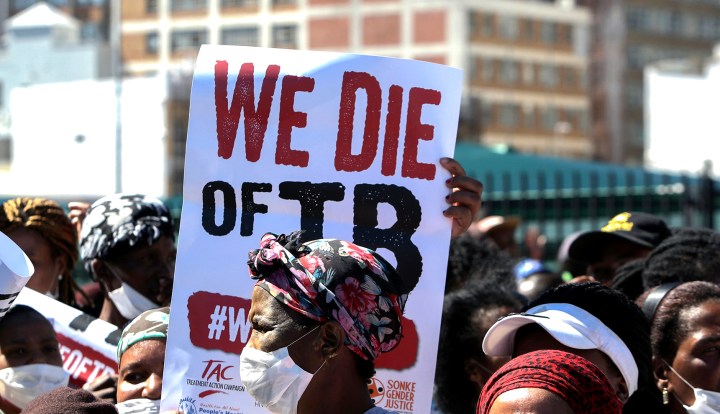
The second United Nations High-Level Meeting on Tuberculosis is taking place in New York on Friday. Sihle Mahonga Ndawonde argues that better TB data and more transparency are needed in South Africa if we are to get and stay on the road to meeting the ambitious targets set and endorsed at this UN meeting.
There is a renewed global commitment to tackle tuberculosis (TB) from global leaders who are meeting in New York today (Friday) for the United Nations High-Level Meeting on TB. The meeting is the second of its kind which, this year, also had a day dedicated to discussing universal health coverage and another for pandemic preparedness.
The high-level meeting comes out of a recognition that dealing with a disease like TB – which is treatable and curable but remains a global health emergency – needs more than a functional health system. It requires actionable political commitment.
When world leaders met for the first high-level meeting on TB in 2018, there was significant optimism that TB as an epidemic could be significantly reduced by 2030.
It saw more than 100 country delegations and 300 civil society groups converge and resulted in the development of a political declaration. This declaration noted that ultimately to end TB by 2030 there should be a 80% drop in new TB cases from 2015 levels, a 90% drop in people dying of TB, and 100% of TB-affected families should be protected from catastrophic costs. These were translated into various targets that were split across countries.
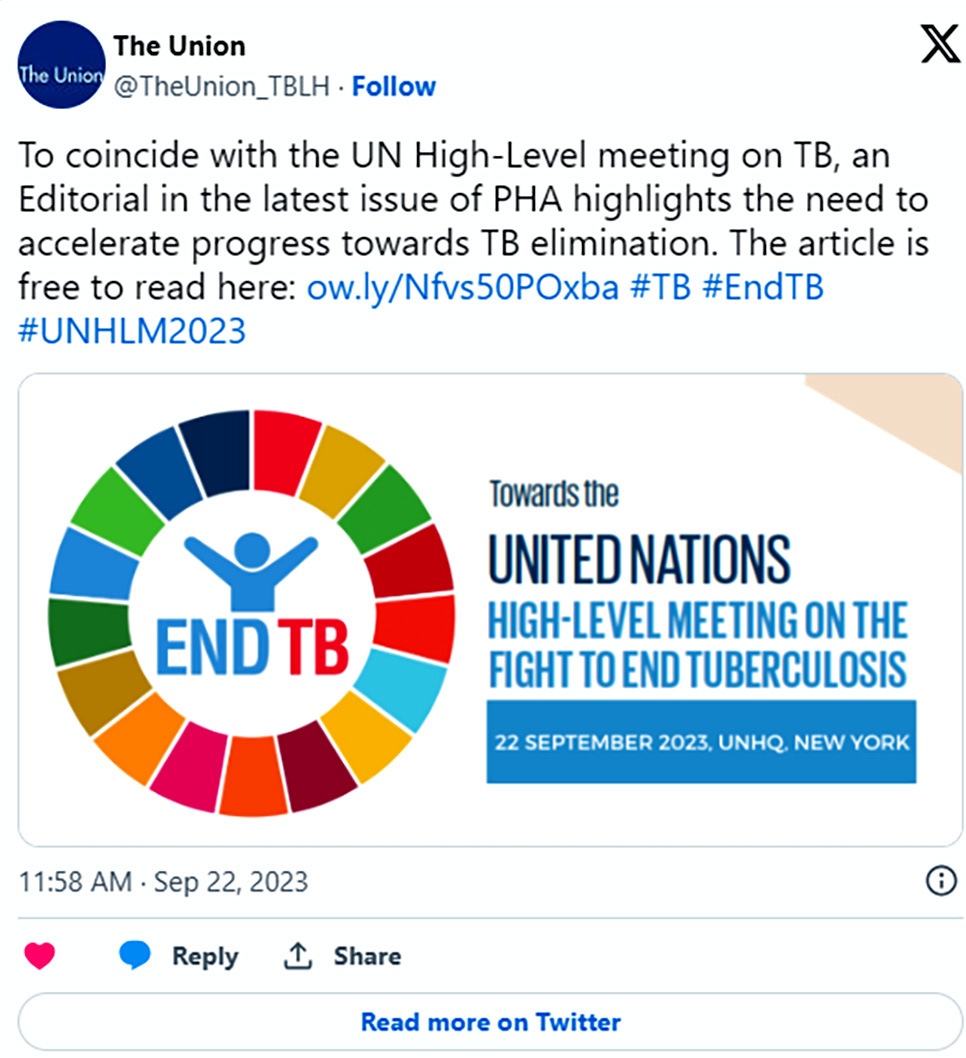
Among the 10 headline targets was a commitment to diagnose globally and treat 40 million people with tuberculosis by 2022 and provide preventative treatment to 30 million who are most at risk of falling ill.
There was also a commitment to mobilise financing for these TB targets.
In South Africa, based on statistics from the World Health Organization, there was a 41% decline in TB case notifications in 2020, compared with 2019.
For South Africa, the commitment translated into the country diagnosing and treating about 1.1 million people between 2018 and 2022 and issuing preventative therapy to another 1.1 million who were classified as vulnerable.
But just more than a year after the 2018 meeting, the world was hit with the Covid-19 pandemic, which threw economies across the globe into distress and aggravated the existing challenges in health systems.
Figures released this week show that of the 40 million target, only 26.3 million people were reported to have been provided with TB treatment – that’s 66% of the target.
Additionally, only 42% of the target to provide 30 million people with TB preventive treatment was reached.
There has been global recognition of the impact of the Covid-19 pandemic on TB prevention and care, and that progress made in the years up to 2019 has slowed, stalled or reversed, and global tuberculosis targets are off track.
According to the UN, there has been an 18% drop in the number of people diagnosed with TB and notified to public health reporting systems.
The number of people who died from TB around the world increased in 2020 and 2021 and the number of people who fell ill also increased in 2021.
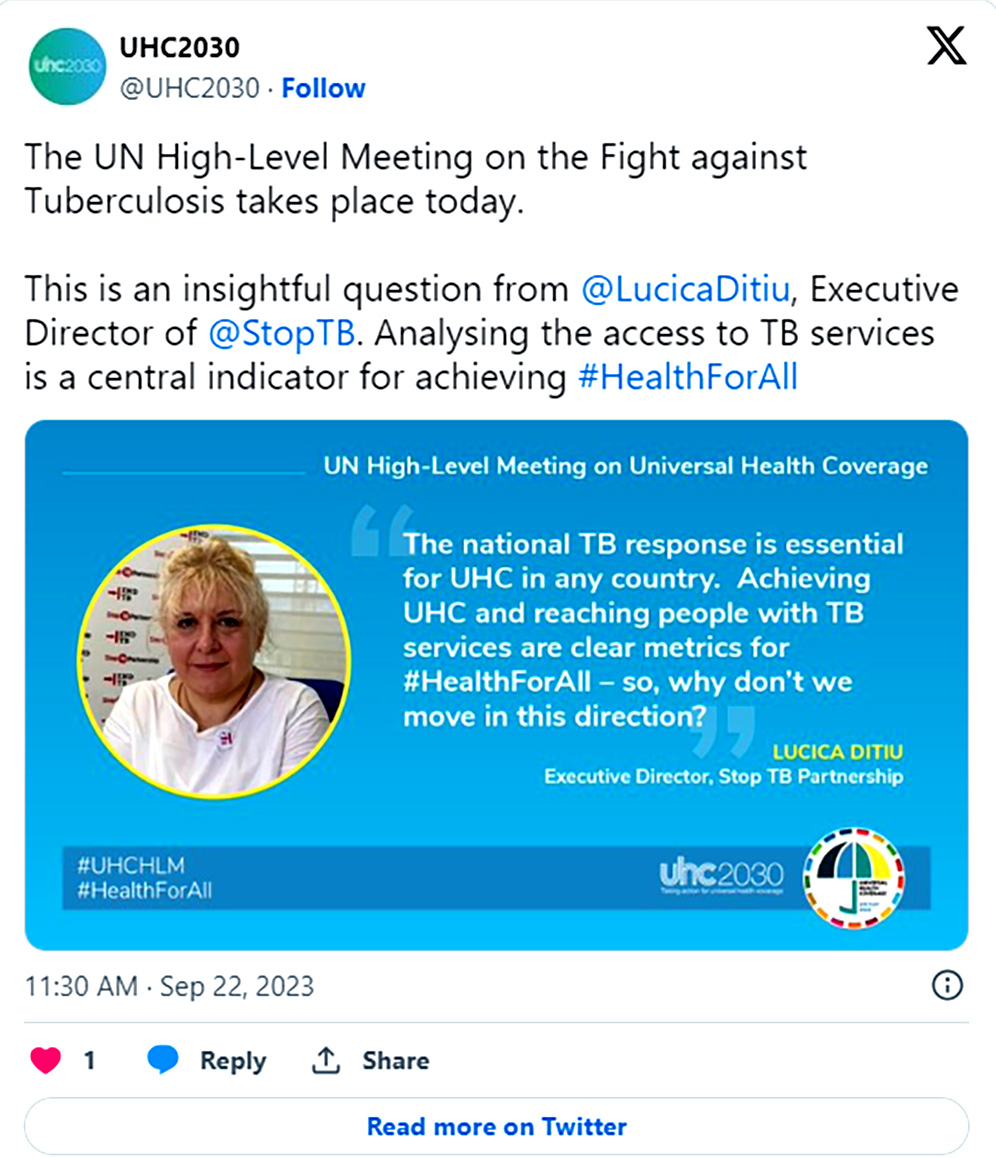
In South Africa alone, based on statistics from the World Health Organization, there was a 41% decline in TB case notifications in 2020, compared with 2019. This was mainly due to reduced TB testing, and not due to lower TB rates.
What is actually happening?
While the high-level meeting’s reprioritisation of TB and the political pressure publicly placed on country governments is critical for the global fight against TB, the meeting has opened another can of worms – what is actually happening in the TB response in South Africa?
TB remains on the government’s hit list of health priorities, and various plans have been put in place to tackle it.
In the aftermath of the Covid-19 pandemic, South Africa’s health authorities developed a TB Recovery Plan to help the country gain momentum in its TB response and regain some of its losses. A key part of the plan was finding and testing the undiagnosed patients and getting them on treatment. A total of 18 high-burden TB districts were identified and targeted. There was also a focus on implementing targeted universal testing for TB across provinces and scaling up routine annual TB testing for people who are in close contact with people who have TB.
In addition to this plan, earlier in 2023, the Department of Health released the new National Strategic Plan on HIV, TB and STIs 2023-2028, providing its five-year trajectory for the roll-out of its TB response.
South Africa has access to some of the best technologies in TB testing and treatment. The country has a collection of data systems that collect various statistics about the TB programme.
But the challenge in the case of South Africa is that despite these policy documents being released and the access to these technologies, there are still so many unknowns.

When world leaders met for the first high-level meeting on TB in 2018, there was significant optimism that TB as an epidemic could be significantly reduced by 2030. (Photo: Nthusang Lefafa / Spotlight)
There is no definitive figure stipulating how many people were tested for TB in 2022. Nor is there any figure indicating how many people were put on treatment. How many of them have been retained? And how many people are still lost to care? How many people who are in close contact with people living with TB were actually treated?
There are no publicly accessible dashboards which make real-time TB data available from facility, district, provincial and national level.
And in terms of the financing linked to these programmes, there are also many gaps.
The National Strategic Plan will be implemented over the next five years. But, by 2028, when it reaches its end point, there will only be two years left to meet the UN Sustainable Development Goal of ending TB.
It is unclear how South Africa will fund the TB programme over the next five years. The Department of Health is unclear on how much is needed and where the money will come from.
All these factors make it impossible for organisations working in the TB space to establish whether the government is meeting national targets that it set for itself in terms of the TB programme roll-out.
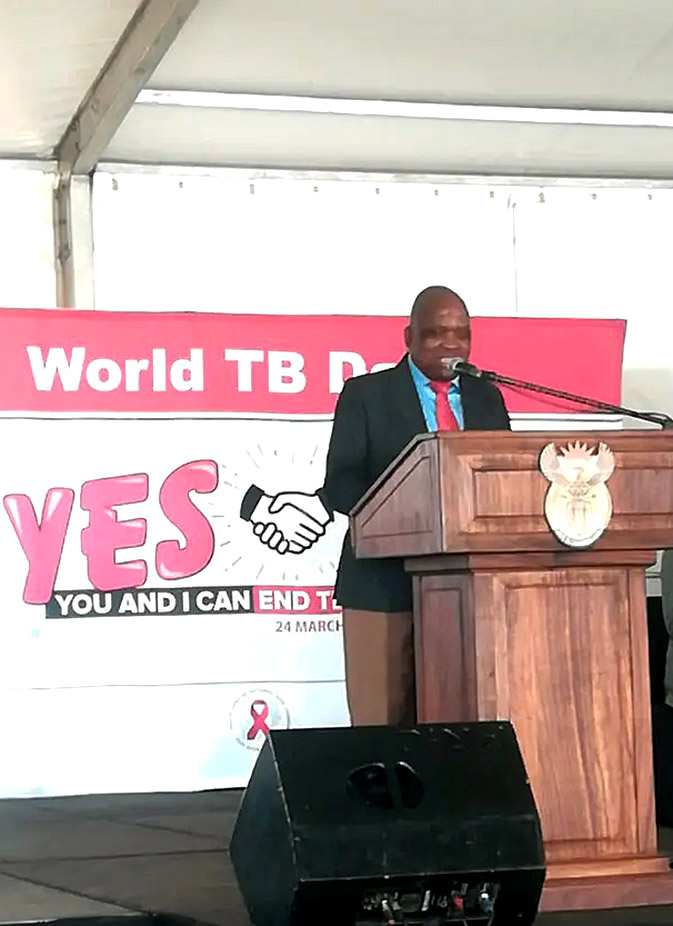
Earlier in 2023, the Department of Health released the new National Strategic Plan on HIV, TB and STIs 2023-2028, providing its five-year trajectory for the roll-out of its TB response. (Photo: Nthusang Lefafa / Spotlight)
So, how do we even think about how they are measuring up to these targets set in global meetings?
What is needed is more transparency on the part of the government.
The only way we can hold the government to account – and make sure there is progress – is if we are armed with the facts and figures attached to our local programmes.
Read more in Daily Maverick: We probably all know someone who has or has had tuberculosis — we just don’t know it
The reality is that the National Strategic Plan will be implemented over the next five years. But, by 2028, when it reaches its end point, there will only be two years left to meet the UN Sustainable Development Goal of ending TB.
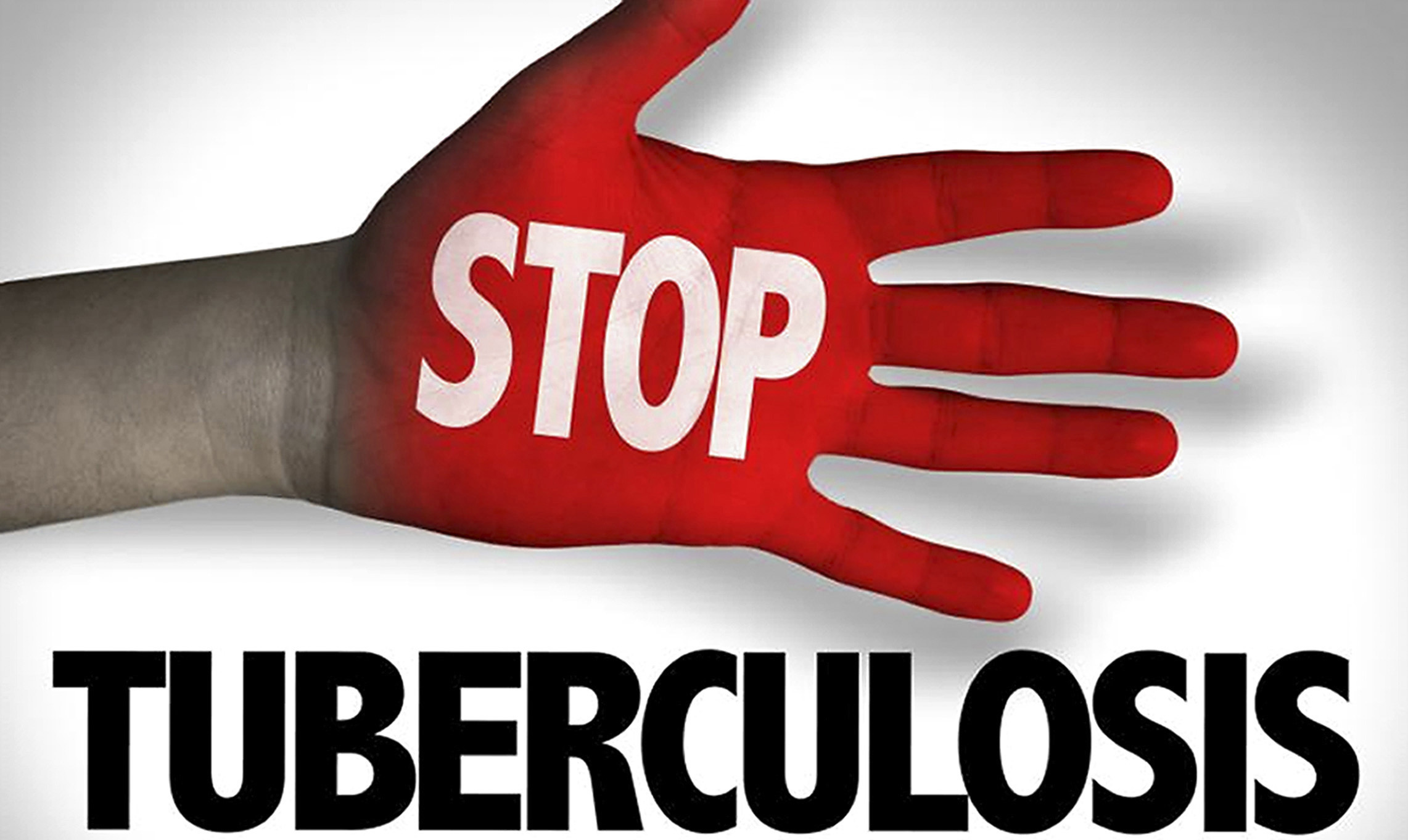
(Photo: today.mims.com / Wikipedia)
Unless we have consistent in-country monitoring over the next five years to ensure that we are meeting targets, we will not know whether or not we are meeting the necessary milestones. A recovery plan in limbo only indicates an unfavourable outcome.
The biggest catastrophe, however, at the end of the day is that there are still more than 50,000 people dying from TB in South Africa every year. More than 300,000 people fall ill with TB in the country every year, and tens of thousands of them are not diagnosed. Global targets aside, their lives matter most. DM
Sihle Mahonga Ndawonde is the project officer for the TB Accountability Consortium, an initiative of the Rural Health Advocacy Project. The consortium aims to strengthen TB care in South Africa by consolidating the implementation of policies, technical solutions and advocacy efforts on a national and provincial level.
This article was published by Spotlight – health journalism in the public interest.





















 Become an Insider
Become an Insider
Comments - Please login in order to comment.